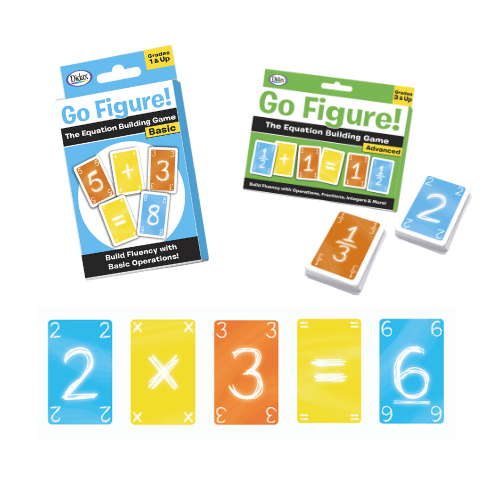The Algebra Game: The Practice Solution You’ve Been Missing
- By Matt Christiansen
- Sep 18, 2017
I taught an Algebra 1 or Algebra 2 class every year I was teaching, and I was always looking for ways to make the content engaging for the students. I firmly subscribe to John Van de Walle’s notion that drill and practice are two very different things, and sought opportunities for the students to have meaningful practice with the concepts they were learning. As a result, I avoided the lengthy problem sets and worksheets that are prolific in high school math classes, opting instead for problems, explorations, and games that encouraged thinking and discussion.
The Algebra Game—or games, actually—provides this kind of rich practice. More than just a simple card or board game, this set of five games provides practice with the core elements of algebra: Linear Graphs, Quadratic Equations (both Basic and Advanced), Conic Sections, and Trig Functions. The premise is the same for each, and I like the format for several reasons:
- Built-In Differentiation: Each game comes with four decks of cards that increase in difficulty from A through D. For example, the Linear Graphs cards start with slopes of 1 and -1 and proceed to a mix of integers and rational numbers. These different decks allow for quick and easy differentiation of the activities.
- Multiple Representations: Every function is represented multiple ways. In the Linear Graphs game, there are cards for the slope-intercept equation, the graph, a table of values, and the equation in standard form. The slope and y-intercept for each function also have their own cards. These multiple representations alone could make for a great matching game, reinforcing the connections between these representations for students.
- Repeatable Activities: The activities that are included with each game require students to match, identify, or represent functions in different ways. The activities are engaging enough to be repeated over and over, and using the different card decks provides an increased challenge as students develop a richer understanding of the concepts.
- Discussion Questions: Every activity, in each game, ends with a set of discussion questions. Brain research tells us that students need to discuss the mathematics they are learning as they are learning it, and these discussion questions take these already strong activities to this level. These open-ended questions help students build a better understanding of the concepts they are practicing.
The Algebra Game helps students build a solid understanding of algebra concepts while practicing in a fun, engaging way. More than just a one-time or single-concept activity, these games are an investment in meaningful practice for students of Algebra.







 © 2023 Didax, Inc. All Rights Reserved.
© 2023 Didax, Inc. All Rights Reserved.